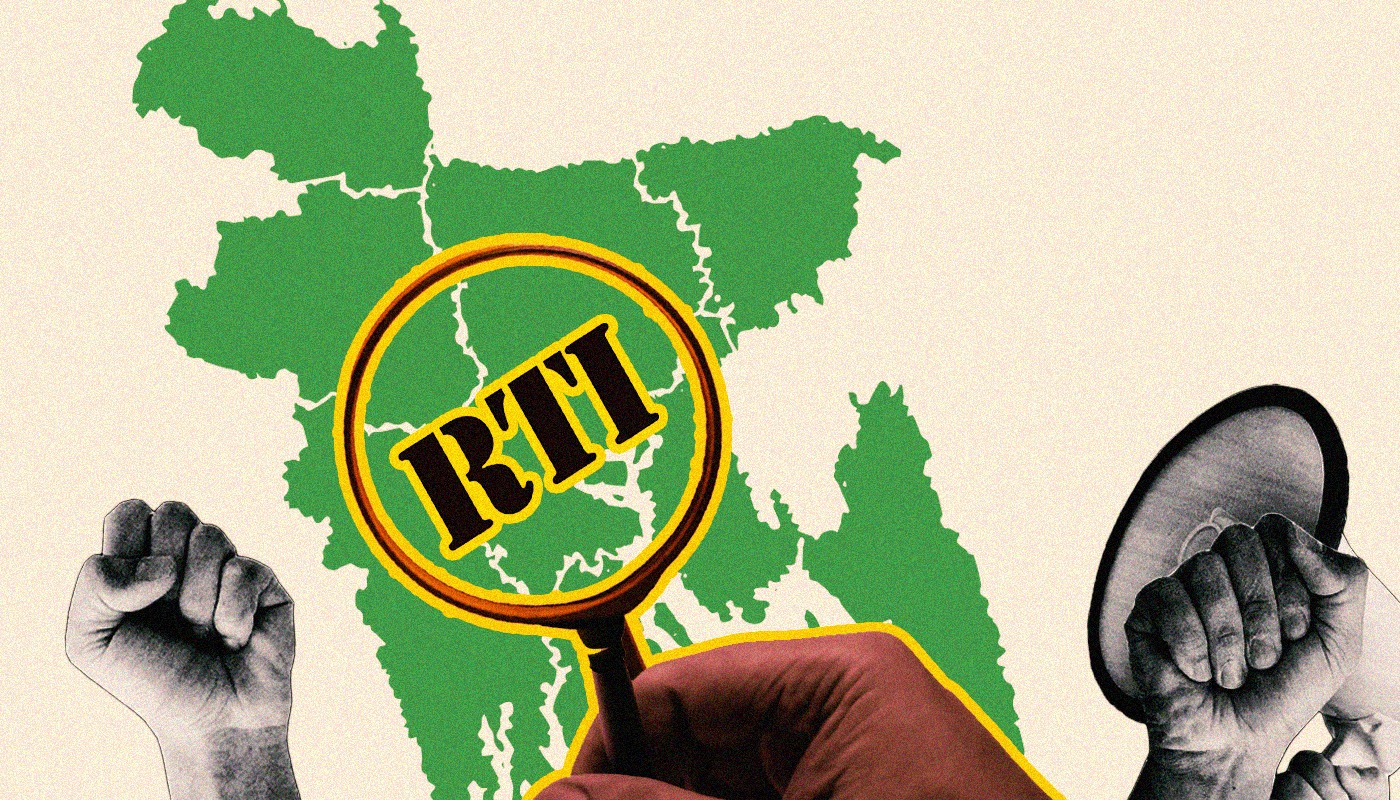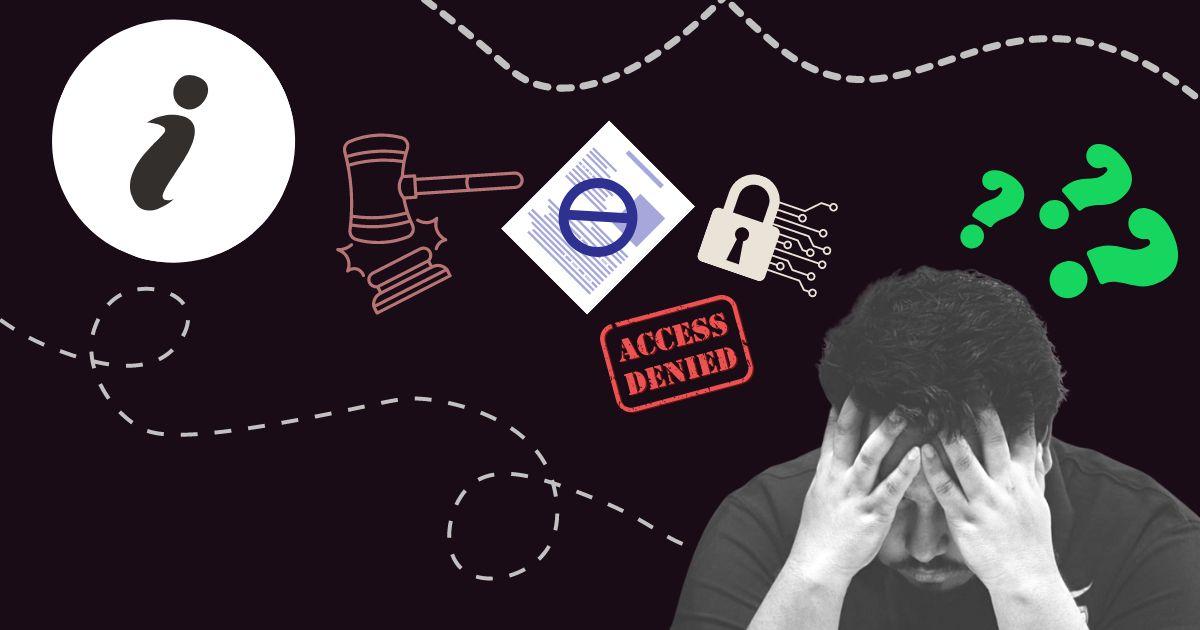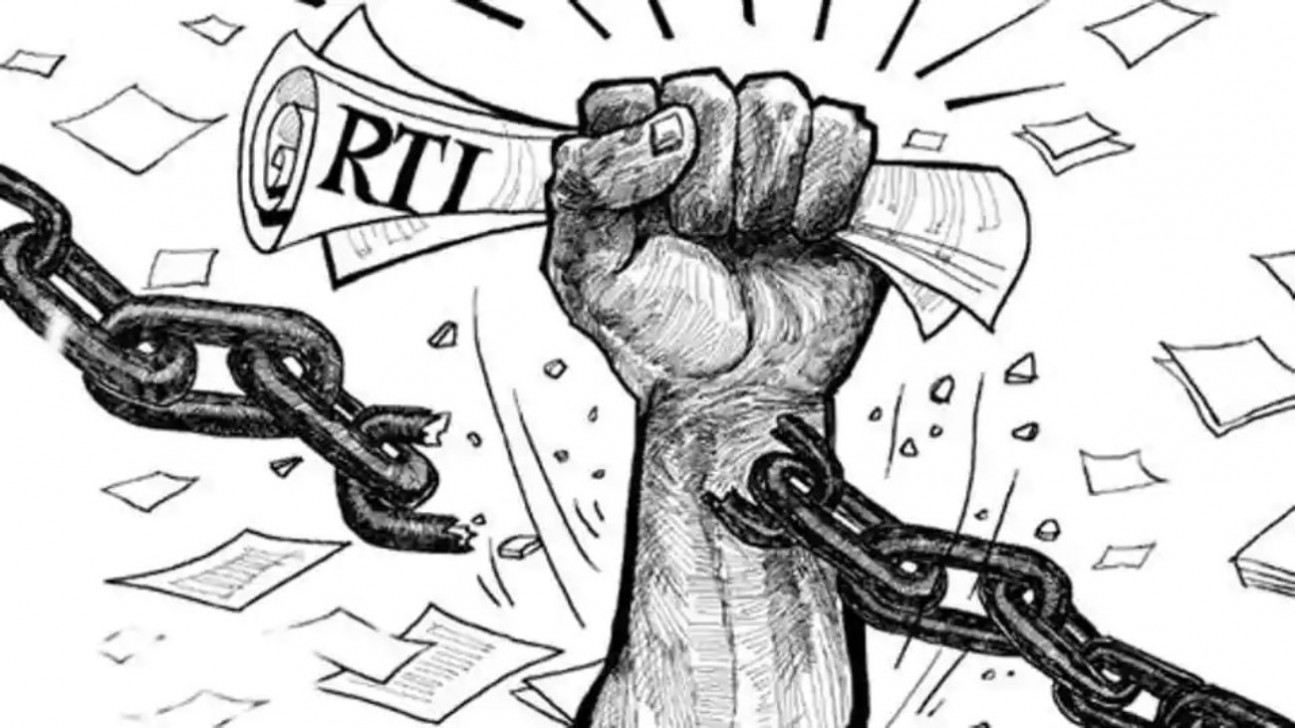101 of the RTI Act for Bangladesh's youth activists

Since the formation of a new popular government in Bangladesh in August 2024, the prevailing theme in the country has been reform and change of the entire governance mechanism. A popular outcry, particularly from students and the youth in general who led the movement to oust the previous regime, has called for a complete overhaul of all branches of the government, which have been mired in years of corruption and malpractice. The catchphrase for change is the establishment of transparency and accountability for all public servants to the people they serve.
While experts work out the reforms, citizens are also responsible for playing a more decisive role in holding all future governments and their administrative units accountable. For that, they can resort to an existing, readily available law: the Right to Information (RTI) Act, 2009. Similar laws exist under different names in various parts of the world, mostly known as Freedom of Information (FOI) laws. In Bangladesh, the RTI law was first introduced as an ordinance by the caretaker government in 2008 and later adopted as an act by the new parliament in 2009. As per the preamble, the law's primary goal was to empower citizens to monitor government work and ensure that it followed the laws of the land and was corruption-free.
The law specifies two ways for citizens to obtain information from the government: i) through "proactive disclosure," which means citizens can demand that the government disclose on its own, without asking, all disclosable information, particularly those related to financial and human resources of the government; and ii) through the "reactive disclosure," which deals with information that is not proactively disclosed and must be specifically sought. Citizens are entitled to seek any information except what is exempted by the law, such as those that, if disclosed, may endanger Bangladesh's security, integrity or sovereignty, foreign relations, sensitive military or intelligence-related information, and citizens' privacy.
Beyond the exempted categories, citizens have the right to seek information related to governance from the public authorities, including NGOs that use public funds. It is best if governments use the proactive disclosure mechanism to disclose as much information to the people as possible, so the latter don't have to use the reactive disclosure mechanism. Unfortunately, that is often not the case.
The Bangladesh law provides a list of information to be published by government bodies on their website and by other public means, which are often benign and innocuous and hide more than they reveal. They include information such as organisational structures, functions, duties, powers, etc. While some countries disclose as much information as possible, in Bangladesh, even innocuous information is often not disclosed, and the public shows no interest in this regard, partly due to a lack of awareness about the RTI Act and partly due to fear of reprisal from those providing information. Now that the younger generation is actively working to change these practices and undemocratic tendencies, it is time to consider the law more seriously.
Those among our youth who are charting change for the future should look at the proactive disclosure list in our RTI Act and decide how much more the government must disclose to be more transparent in its work. Many international guidelines are available online, where the sky is the limit. The most important thing is what we, as citizens, wish to obtain.
In Canada, for example, proactive disclosure includes financial and human resources-related information by all government departments and agencies, travel and hospitality expenses, and more. In Sweden, on the other hand, the principle of public access to information is considered the most fundamental principle of the government. Swedish laws contain provisions on the right to access all official documents, which is a manifestation of the principle of public access to information, which includes all registered documents in the country. Let our young visionaries decide what the traffic would bear in our country.
Not all information available to public authorities can be disclosed proactively, as there is information within a piece of information that must be pried open through a reactive disclosure mechanism based on citizens' requests. For example, there could be a proactive disclosure as to who was awarded a tender, but there is little scope to know if the tender receiver was selected based on any favour or if any unfair means were involved. This can only be found through the reactive disclosure mechanism. Most sensitive information is obtained through this procedure. For example, the demolition order for the illegal construction of the BGMEA building on Hatirjheel Lake in Dhaka resulted from an RTI request submitted by Syeda Rizwana Hasan, now one of the advisers of the interim government. To appreciate the scale of information application under the reactive process, consider India, where an average of six million RTI requests are made annually to different public offices. In contrast, the average in Bangladesh is 10,000 annually.
Finally, what information should citizens seek from the authorities, and for what purpose? The short answer is that any government project or activity of any public body that affects public interest could be the object of inquiry by citizens to find corrective measures. Let our awakened student groups and the youth nationwide form citizen groups to identify issues on which to seek information from government bodies, in order to monitor their work and keep the pressure on them to be transparent and accountable. In the process, they will also discover why they must keep an eye on the formation and work of the Information Commission, which plays a crucial role in taking the law forward by, among other things, resolving disputes between the demand and supply sides of information. There could be no better law for our youth to be engaged in making a new Bangladesh where people's power reigns supreme in the true sense of the term.
Dr Shamsul Bari and Ruhi Naz are chairman and assistant director (RTI), respectively, of Research Initiatives, Bangladesh (RIB). They can be reached at rib@citech-bd.com.
Views expressed in this article are the authors' own.
Follow The Daily Star Opinion on Facebook for the latest opinions, commentaries and analyses by experts and professionals. To contribute your article or letter to The Daily Star Opinion, see our guidelines for submission.




 For all latest news, follow The Daily Star's Google News channel.
For all latest news, follow The Daily Star's Google News channel. 



Comments